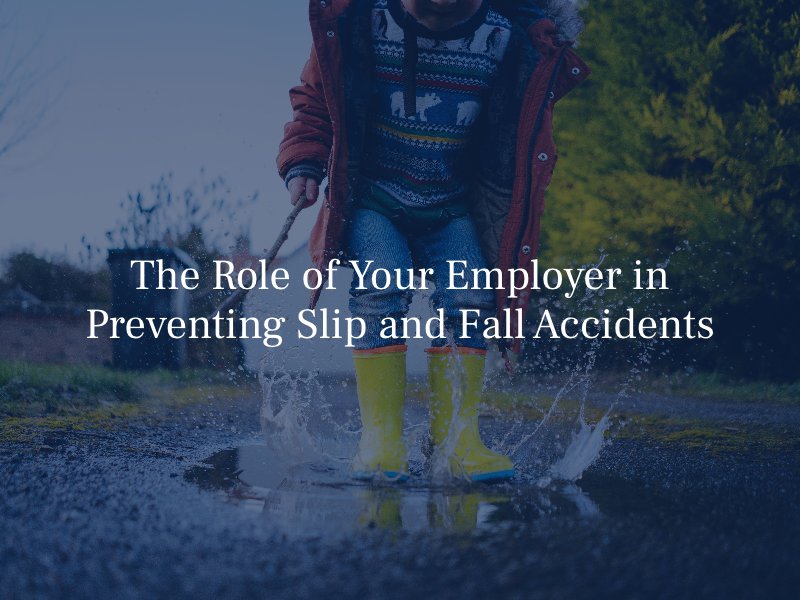The Role of Your Employer in Preventing Slip and Fall Accidents
May 24, 2023 Posted In Brain Injuries
Slip and fall accidents can happen in any workplace, from office buildings and retail stores to construction sites and warehouses. These incidents can lead to serious injuries, financial burdens, and legal consequences for both employees and employers. While workers must take personal responsibility for their actions, employers must also play a crucial role in preventing such accidents in the following ways.

Regular Maintenance and Inspections
Employers are responsible for ensuring that the premises are well-maintained and free from hazards. Regular inspections should be conducted to identify potential risks such as wet floors, damaged walkways, loose handrails, poor lighting, or cluttered areas. By promptly addressing these issues and repairing or replacing any damaged or faulty equipment, employers can prevent slip and fall accidents before they occur.
Adequate Training and Safety Education
Employers should provide comprehensive safety training programs that educate employees about potential hazards, safe working practices, and how to identify and report any unsafe conditions. Training should cover topics such as proper footwear, the use of safety equipment, and techniques for navigating slippery surfaces. By equipping employees with the necessary knowledge and skills, employers empower them to take proactive measures and reduce the risk of accidents.
Clear Communication and Signage
Effective communication is also critical to preventing slip and fall accidents. Employers should clearly communicate safety protocols and guidelines to all employees. This includes posting signs and notices in visible areas to indicate potential hazards, such as wet floors or uneven surfaces. Well-placed warning signs can help raise awareness and encourage caution among employees and visitors.
Implementing Safety Policies and Procedures
Employers should establish and enforce comprehensive safety policies and procedures. These should address key areas such as housekeeping practices, spill clean-up protocols, and regular maintenance schedules. By creating a culture of safety and accountability, employers can encourage employees to actively participate in maintaining a hazard-free environment. In addition, periodic reminders and updates on safety policies can reinforce their importance and help prevent complacency.
Collaboration and Reporting Systems
Employees should feel encouraged by employers to communicate safety concerns to management openly. Establishing a reporting system where employees can easily report potential hazards or near-miss incidents allows employers to address issues promptly. This collaborative approach ensures that employers are aware of potential risks and can take immediate action to prevent accidents.
Consequences of Failing to Prevent Slip and Fall Accidents
When an employer fails to prevent slip and fall accidents, they can face significant financial repercussions. The costs associated with medical expenses, workers’ compensation claims, and potential lawsuits can quickly escalate. Additionally, lost productivity due to employee absences, increased insurance premiums, and potential property damage or inventory loss can further strain the company’s finances.
Workers injured in a slip and fall on the job are entitled to workers’ compensation benefits. Those include medical coverage for all necessary medical treatment, temporary disability benefits if you are unable to work or have work restrictions due to your injury, permanent disability benefits if you suffer a permanent impairment, and vocational rehabilitation if you cannot return to your previous job.